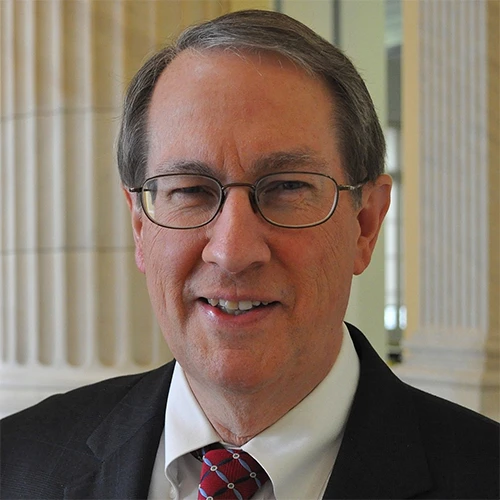Throughout my 26 years in Congress, including three terms as Chairman of the House Judiciary Committee, there was a clear need to strengthen our patent system in order to protect the rights of innovators and entrepreneurs. The 2011 passage of the America Invents Act was the high water mark, a bipartisan legislative achievement that gave companies targeted with abusive patent litigation the opportunity to fight back without spending huge sums of money defending themselves in court.
That’s why I was shocked to see the U.S. Patent and Trademark Office (USPTOUnited States Patent and Trademark Office. See also PTO.) issue an advance notice of proposed rulemaking (ANPRM) last month that would not only undermine the progress that we’ve made, but also violate the America Invents Act itself with a series of incompatible proposals ostensibly suggested to the agency by various unidentified “stakeholders.” These proposed rules would negatively impact almost every sector of our economy. The USPTOUnited States Patent and Trademark Office. See also PTO. needs to abandon this ill-conceived effort.
During a hearing before the Judiciary Committee last month, USPTOUnited States Patent and Trademark Office. See also PTO. Director Kathi Vidal was asked by my former colleague, Rep. Zoe Lofgren (CA-18), “Why would you propose something that’s inconsistent with the [America Invents] Act?”
While these proposed rules have many flaws, what’s most concerning is that they directly violate the statute. For example, under the AIAAmerica Invents Act of 2011. AIA made modest reforms, most notably moving the U.S. to a first-inventor-to-file system more aligned with foreign practice, but also including expanding prior user rights to all patent-eligible subject matter, and instituting a post-grant review proceeding., parties are given up to a year to file a petition to PTABPatent Trial and Appeal Board. Reviews adverse decisions of examiners on written appeals of applicants and appeals of reexaminations, and conducts inter partes reviews and post-grant reviews. The Board also continues to decide patent interferences, as it was known as the Board of Patent Appeals and Interferences (BPAI) before the AIA.. However, under the ANPRM the USPTOUnited States Patent and Trademark Office. See also PTO. proposes to unilaterally rewrite the statute and shorten that deadline to just six months. Similarly, the USPTOUnited States Patent and Trademark Office. See also PTO. proposes to rewrite the statute and impose its own rules about who may or may not file a petition, despite the statute itself being clear that any member of the public may do so. The USPTOUnited States Patent and Trademark Office. See also PTO. also proposes rewriting the standard of review set forth in the statute, changing the AIA’s standard for a Patent Trial and Appeal Board (PTABPatent Trial and Appeal Board. Reviews adverse decisions of examiners on written appeals of applicants and appeals of reexaminations, and conducts inter partes reviews and post-grant reviews. The Board also continues to decide patent interferences, as it was known as the Board of Patent Appeals and Interferences (BPAI) before the AIA.) review from a “reasonable likelihood” threshold to a “compelling merits” test. This would impose a higher threshold for review that not only exceeds the agency’s authority, but unlawfully limits access to reviews for businesses that find themselves under attack from patent trolls.
The USPTOUnited States Patent and Trademark Office. See also PTO. does not have the power to revise laws that Congress has already written. Every grade schooler in America is taught that Congress writes the laws, and the executive branch enforces the laws.
A rule that purports to violate the law is, on its face, unconstitutional. Period. Full stop.
In terms of real-world impact, this proposal could seriously weaken our economy. The PTABPatent Trial and Appeal Board. Reviews adverse decisions of examiners on written appeals of applicants and appeals of reexaminations, and conducts inter partes reviews and post-grant reviews. The Board also continues to decide patent interferences, as it was known as the Board of Patent Appeals and Interferences (BPAI) before the AIA. review process contributed nearly $3 billion to GDP from 2014 to 2019, with a particular benefit to the manufacturing sector. Limiting access to this critical lifeline for companies that are under attack would be an unforced error at a time when we should be doing everything we can to promote economic growth.
The USPTOUnited States Patent and Trademark Office. See also PTO. got this one wrong. Director Vidal should immediately withdraw the proposed rules that would violate the AIAAmerica Invents Act of 2011. AIA made modest reforms, most notably moving the U.S. to a first-inventor-to-file system more aligned with foreign practice, but also including expanding prior user rights to all patent-eligible subject matter, and instituting a post-grant review proceeding., weaken access to PTABPatent Trial and Appeal Board. Reviews adverse decisions of examiners on written appeals of applicants and appeals of reexaminations, and conducts inter partes reviews and post-grant reviews. The Board also continues to decide patent interferences, as it was known as the Board of Patent Appeals and Interferences (BPAI) before the AIA. reviews, and harm industries that are critical to America’s economic and national security.

